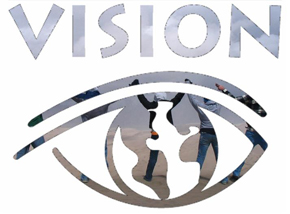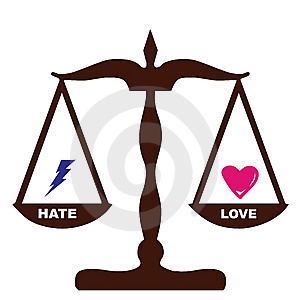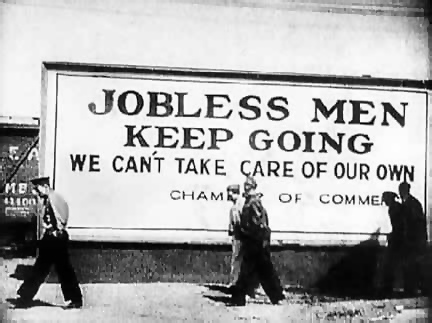
Article Contributed by Roxanne Emmerich
At some point in his or her career, every politician gets tarred with a catch phrase–and usually not a flattering one.
George Bush, Sr. is stuck with two. There was “Read my lips, no new taxes,” of course. But only slightly less unfortunate was his dismissal of what he called, “The ‘vision thing.'”
He was trying at the time to shake the impression that he was a competent day-to-day manager but he lacked any grander vision of where he wanted to lead the country. His choice of words and tone of voice didn’t exactly help.
John F. Kennedy had a vision: “A man on the moon before the end of the decade.” And it inspired the seemingly impossible. We had about 15 percent of the needed know-how when he made that declaration.
Bill Gates had a vision that there would be a computer on every desk in America. And this was back when most people didn’t even know what a computer was!
Why vision matters
I once had a CEO look me straight in the eye and say he didn’t really “go for” visions. “I put my energy into training,” he said.
But training for what? I wondered. You do training without a vision, you’re all gas pedal and no windshield.
A study at the Sloan School of Management showed that leaders who create, communicate, and implement successful organizational visions were more successful in EVERY measure than those who did not.
Three elements of a truly GREAT vision
Powerful, effective, propelling visions all have three things in common:
1. Short, simple and strong. Shorter is stronger. Take a given sentence and ask which words are pulling their weight and which can take a hike. Change vague expressions like “high-quality” and “world-class” into specific, powerful language that reflects your values. Simpler is also better. Use words a fourth grader could understand.
2. Visual. A statement that doesn’t create a powerful visual image of the future isn’t a vision. It doesn’t give people anything to keep in their mind’s eye while they work. You need a landmark on the horizon or you’re driving blind.
3. Of service to others. Make sure your vision statement reflects an intense, focused drive to serve the needs of your customers, not just to “satisfy.”
The human spirit will not invest in mediocrity. That’s why a vision always starts with a bold and audacious idea. A vision statement is nothing less than an invitation for others to invest in your dreams and a promise to do the same in return. By following these simple rules, you can create the kind of vision that has been proven to power companies beyond what was ever thought possible.
Vision doesn’t stop at the top
Once you’ve got your vision defined–your clear, concise, powerful, visual, service-oriented vision–don’t put it in the drawer. Pour it all over your company. Let it seep into every nook and cranny of everything your company does. Put it on the lips and in the hearts of your workforce or it will never find its way into the wider world.
The turning point for a vision is when everyone sees it, gets it, and buys into participating to make it happen. And if you’ve built your vision around a bold and audacious idea, a ludicrous, unreasonable, captivating idea–like, oh, I don’t know, going to the moon–people will throw their hearts over the bar with you to make that unreasonable dream a reality.
About the Author
Roxanne Emmerich is renowned for her ability to transform “ho-hum” workplaces into massive results-oriented “bring-it-on” environments. To discover how you can create a 20/20 business vision, motivate employees, ignite their passion and catapult performance to new levels, check out her new book – Thank God It’s Monday. Now, you can get a free sneak preview at: http://www.thankgoditsmonday.com/preview_the_book/
Category: Success Attitude

What is there to fear if you really say YES to success?
1. Fearing your own power. If you truly stepped into our potential, who would you become? Would you abuse your power? What might you actually accomplish? When you come to the end of your days on earth and look back over your life, what do you want to see as your legacy?
Remember the Marianne Williams quote from A Return To Love? “…Our deepest fear is not that we are inadequate. Our deepest fear is that we are powerful beyond measure. It is our light, not our darkness, that most frightens us. We ask ourselves, who am I to be brilliant, gorgeous, talented, fabulous? Actually, who are you not to be? You are a child of the Universe. Your playing small doesn’t serve the world.
There’s nothing enlightened about shrinking so that other people won’t feel insecure around you. We are all meant to shine, as children do. We were born to make manifest the glory of God that is within us. It’s not just in some of us; it’s in everyone. And as we let our own light shine, we unconsciously give other people permission to do the same. As we’re liberated from our own fear, our presence automatically liberates others…”
2. More commitments and responsibilities. A few years ago I was taking a spiritually-based class on money and success. In one of the exercises we were asked to imagine that we were standing with our arms open to receive all the money we could ever want or need. As the money came pouring in, we were then asked to notice what we were thinking, feeling, and experiencing. I fully expected to feel joyfull with my arms open wide with excitement for myself and all the good I might do in the world. Instead, my arms went up to block some of the flow. What a surprise!
I realized that success and money meant more responsibilities and commitments and I already had plenty to do! Working more deeply with my beliefs around money, and success helped me to shift my thinking so that I could attract more abundance into my life with having to add more stress by hiring people to help! Some worthiness issues popped up to show me I had some further inner healing to do.
3. Success is life changing, personally and professionally. Success brings losses and gains such as saying goodbye to friends, making new ones, changing your lifestyle, becoming more visible and well known. Great success can go to your head and have a negative impact. Look at some of the struggles celebrities have had with their successes. Success can also be isolating and lonely when people feel they need to look and show up a certain way for others because of the roles we take on in our personal and professional life as parent, father, wife, mother, boss, CEO ….. You know the old saying “It’s lonely at the top.”
Success calls us to grow up, be a mature adult and might suggest that we must also suppress the spirit and playfulness of our inner child, which is untrue unless we willingly choose to abandon that part of ourselves Fear of success can feel scarier to many people more than fear of failure. Having to maintain a high level of success can be daunting. And once you’re at the top, the belief might be that the only place to go next is down. We can easily forget that we are always at choice and can mean whatever we want.
4. Feeling like a fraud. Ouch. That’s a common fear of “being found out” or exposed to NOT be the person people want, expect, or think you really are. The fear is that if people find out the truth, they will judge you, leave you, stop loving you, throw you away……
Being discovered can feel like a terrifying threat and yet, I believe that we all just want to be loved and accepted unconditionally. The truth is that when we dare to expose the things about us we feel are unlovable to others and they still love us and want to hang out with us, we experience deeper intimacy, trust, and safety in our relationships.
5. You won’t have a life. Many people feel that if they reach a high level of success they will lose themselves in their work. They’ll be so busy having a prosperous business or career that they will have to sacrifice a fulfilling personal and family life. The key is getting really clear on your values, priorities, boundaries, and life vision so that you are making choices that honor what matters most to you. With the limitless opportunities life offers, continuing to check in with yourself regularly when making decisions will help you to make the right choices to enjoy your life.
Gail has a highly successful business staging people’s homes to be sold on the market. A go-getter, she built a thriving business from scratch in two short years. She worked long hours during the day and often on weekends. When she came to me she was exhausted and stressed complaining she had no life and was losing her passion for work she loved. Once she got clear on what she valued, established stronger boundaries, hired some help, and narrowed her services, she began to feel relief. Within a year she making radical changes to her business she got married and began enjoying success in her business and personal life.
Does this sound like you? To learn more about what may be holding you back from stepping into the next and highest version of who you are, consider the following twelve questions:
Have you been resisting or denying who you are meant to be?
1. What is your definition of success? What does success mean to you? Be specific. (Psst is this your definition or one you think it should be?)
2. What fears, concerns, beliefs, expectations, or assumptions do you have associated with success? Is it possible that they are false?
3. What inspires you and gives you courage?
4. Make a list of past successes, both big and small. Which ones are you most proud of?
5. What specific qualities, strengths, gifts, talents, passions, or skills that empowered you to succeed?
6. What made them successes for you?
7. How have you benefited and grown from your past successes? What were the gifts and blessings?
8. What are you resisting or denying that now that is keeping you small?
9. If you let go and said YES, how would you and your life change?
10. What would you have to give up? What would you gain?
11. Who would you become? (happier, self-confident, authentic, stronger???)
12. To feel more successful, fulfilled, prosperous… what would need to change so you could turn your no into a YES?
Whatever definition you have for success, you are always at choice as to what you say yes or no to.
Many people feel success is dependent on a good result. It’s a failure if it doesn’t go the way they want. I challenge that belief saying, “We can celebrate success for any action we take regardless of the result because we are willing to try something new”. Every experience offers a healing and growth opportunity. Being open to recognize the gifts and blessings, even if they feel undesired, can help you shift from a victim of circumstances to the hero of your own life story.”
 How about those times when you feel frustrated or beat yourself up because you haven’t changed a behavior or achieved a goal you say you want? Perhaps it’s a change of behavior or a goal that you haven’t been able to achieve. You’ve tried with some limited success and you continue to backslide. Maybe you haven’t even taken the first step because you feel afraid.
How about those times when you feel frustrated or beat yourself up because you haven’t changed a behavior or achieved a goal you say you want? Perhaps it’s a change of behavior or a goal that you haven’t been able to achieve. You’ve tried with some limited success and you continue to backslide. Maybe you haven’t even taken the first step because you feel afraid.
So, let’s say there is a change you feel ready to make even if you feel afraid or resistant. You know inside that it is time to shift from thinking and talking about what you want into DOING. Being actively engaged in demonstration through action is a critical factor in manifestation when you say YES to what you want and who you are meant to be.
Common desires include:
* Reducing weight, living a healthier lifestyle
* Financial freedom, having a steady flow of abundance
* A loving relationship with a soul mate
* Health, energy, vitality
* Making money doing what you love
* Inner peace and joy
When we begin moving past our comfort level, our ego/mind begins to freak out with fear. Sometimes our panic is obvious. We feel physical sensations: heart beating fast, dry throat, shallow breathing, a sense of panic or urgency, or a knot on our stomach. When our conscious or subconscious thoughts, are fixed on imagined events that may or may not ever happen the future, fear can turn to panic.
Uncertainty, feeling out of control can send us zooming into sabotage. When people unconsciously feel powerless or “trapped” they look for ways to feel more in control which can often be projected by trying to control others. In the throes of fear and distress our human instinct is to grab onto something that creates the illusion of control so we can breathe a sigh of relief. We feel like we have been saved as if we were downing in deep water and found a life preserver to keep us afloat. Even though our relief might be a temporary fix, we feel back in the driver’s seat because our immediate sense of urgency has been calmed.
Another way we manage discomfort is to self-soothe in positive ways including: nurturing rituals, affirming self-talk, gratitude, spiritual practices, doing fun things, and connecting with uplifting friends. Or, we can negatively self-soothe through addictive behaviors such as: overeating, drinking, overspending, and overworking that ultimately sabotages our intentions. Sweets, carbs, and junk food are a great way to numb out. Repression becomes an automatic response to discomfort; a powerfull coping mechanism to manage whatever we want to avoid seeing, feeling, or thinking about. Numbing is a way we “get rid” of any feeling we don’t want to deal with. We know that we are choosing to do or not do will probably lead to regret and self-condemnation and we do it anyway…
What about the subtle unconscious ways our fears operate beneath the surface of our minds to create chinks that weaken our inner foundation and begin the erosion of our commitments?
Common forms of self-sabotage:
* Negative procrastination – wasting time, putting obstacles in the way of taking action towards goals, making excuses for delays, rationalizations, and creating confusion.
* Avoidance – getting sick, changing the subject, leaving the room/phone call, poor eye contact, being too busy, getting distracted, keeping people at a distance (emotionally, physically, spiritually), indirect or vague communication, putting things off due to discomfort or overwhelm, and excessive sleeping.
* Destructive habits – addictive behaviors, dishonesty, overindulgence, clutter, disorganization, overspending, overeating, overbooking, and self-neglect.
* Irresponsibility – excessive debt, risky behavior, lateness, missed appointments and deadlines, over-promising and under-delivering, breaking agreements/promises, forgetfulness, and tolerating things.
* Putting others before YOU – people-pleasing, remaining in harmful situations, inability to set and maintain personal boundaries, putting the needs of others before your own, and compliance.
* Negative self-talk – Shoulds, coulds, ought tos, musts, self-criticism and judgments, anticipating or expecting the worst vs. the best, scaring yourself with worst case scenarios, talking yourself out of trusting yourself, your wisdom and instincts, creating confusion, minimizing and devaluing goals….
* Living in drama – making the situation worse or bigger than it really is. Going into “your story” vs. what is really happening or true. Being in your story means, the energy is focused on the pain, difficulty, PROBLEM, old patterns of reacting that makes the situation overwhelming, impossible, HUGE, hopeless, pointless, powerless. This is a great way to abandon goals and works in tandem with negative self-talk and fears.
If we have become attuned to our “management patterns”, we can recognize the signals and use tools to restore a sense of inner calm and perspective without costing us additional stress or pain. (Tip: Slow deliberate breathing and bringing your attention to the here and NOW are two shifting practices that can reduce the intensity of fear. Fear thoughts focus on the future and coming back to the present is key.)
What Drives Us Forward?

If taking action is the key to producing results, why doesn’t everybody take action? Why doesn’t everybody follow through on their plans? Why is it that so many people know what they should do, but still don’t do it?
The most common reasons are: ‘I lack motivation’, ‘I’m too lazy’, ‘I don’t feel confident’ or ‘I am afraid that…’ Is this true for you as well? If you are like most people, you would probably be nodding your head.
For example, you know that you should start exercising three times a week, but you put it off because you feel lazy. As a salesperson, you know you should make ten cold calls a day, but you don’t do it because you don’t feel like being rejected. You know that public speaking will help your career, but you don’t get on stage and face the audience because you feel the fear.
At the same time, there are many things we do, knowing full well that we shouldn’t! Why is that so? That’s because we feel like doing it.
For example, you know that eating that extra piece of delicious chocolate cake is bad for your weight/health but you still do it because you feel greedy. You know that you shouldn’t go back to sleep when the alarm rings, but you still lie in because it feels so good.
Have you ever experienced a day when you managed to get a lot of things done? When your ideas flowed, when you made the best decisions and you were absolutely on form? Well on those ‘top of form’ days, you were in a series of resourceful states.
Then again, have you had days when you couldn’t get anything done? When you couldn’t do anything right? You said and did the most stupid things? How could this happen? You were the same person and had exactly the same resources available to you. The difference was that you were not in a resourceful state.
If you think about it, ‘motivation’, ‘fear’, ‘confidence’, ‘inertia – expressed as procrastination’, are nothing but emotional states we experience.
Emotional ‘States’ like ‘excitement’, ‘passion’, ‘confidence’, and ‘happiness’, ‘exhilaration ‘get us to take action and perform at our peak.
At the same time, states like ‘ fear’, ‘anxiety’, ‘stress’, ‘inertia’, ‘depression’, ‘tiredness’ hold us back.
It is not logic that drives our actions. It is our emotions. Very often, we know that logically we should do something, but we don’t do it because we don’t feel like doing it.
People who take consistent action and produce great results do so because they experience many more resourceful states on a daily basis.
It is truly our emotional ‘states’ that drive our actions and behaviors all the time. How we feel truly determines what we do and how we do it.
It is these empowering states that allow us to get the best out of themselves!

Every time I turn on the news I feel like screaming. I am sick and tired of hearing about how bad the economy is. Unemployment is up and is only going to get worse. Banks are in trouble and going under. Real estate is a mess and there is no end in sight. Major corporations are going bankrupt – heck, even the big three automakers may go under.
I hear about how this is the next great depression. I hear about the collapse of the dollar, the collapse of the western world, and the end of society as we know it.
It Isn’t As Bad As It Sounds
The sad part is that it isn’t all that bad. Yes the economy stinks, but this is only when compared to the amazing boom we experienced in the last decade. Companies have been able to go after the low hanging fruit-heck, there was more lying on the ground than you could pick up!
Just because the ground isn’t littered with business anymore doesn’t mean that there isn’t business out there. You just have to work for it. And the past decade of easy business means that most companies have not made the connections and built relationships. Now they pay the price.
And at the end of the day, now is the time where entrepreneurs can really shine.
No, I’m not crazy. Think about what a true entrepreneur does.
- He connects with his customer
- identifies his needs and problems
- then creates products and services to fill those needs or problems
In other words, he gets paid to solve problems
Now more than ever companies are in trouble. Your customer desperately needs you. No, he isn’t spending indiscriminately. But if you solve his problem and help him survive (or thrive) in this downturn he will be your customer for life. And you solve your “slow business” problem at the same time. Only an entrepreneur can do this, and you finally have an advantage over larger companies.
Simple, but Hard to Do
This is a simple concept that is hard to do. I’ve written several articles that are aimed at this:
- Recessionproof your sales
- How to Thrive in a Recession
- How to Thrive in a Recession – Ignore the News
- How to Thrive in a Recession – It’s All About the Customer
- How to Thrive in a Recession – Working for Someone Else
 Brandt Smith is a sales, marketing, public speaking, and professional development expert. Learn about achieving wealth and life balance through entrepreneurship at Wealth and Wisdom, where he is cofounder and senior editor. Their advice on wealth building, personal development, and life balance can help take you to the next level. You can also read more of his thoughts on his blog.
Brandt Smith is a sales, marketing, public speaking, and professional development expert. Learn about achieving wealth and life balance through entrepreneurship at Wealth and Wisdom, where he is cofounder and senior editor. Their advice on wealth building, personal development, and life balance can help take you to the next level. You can also read more of his thoughts on his blog.